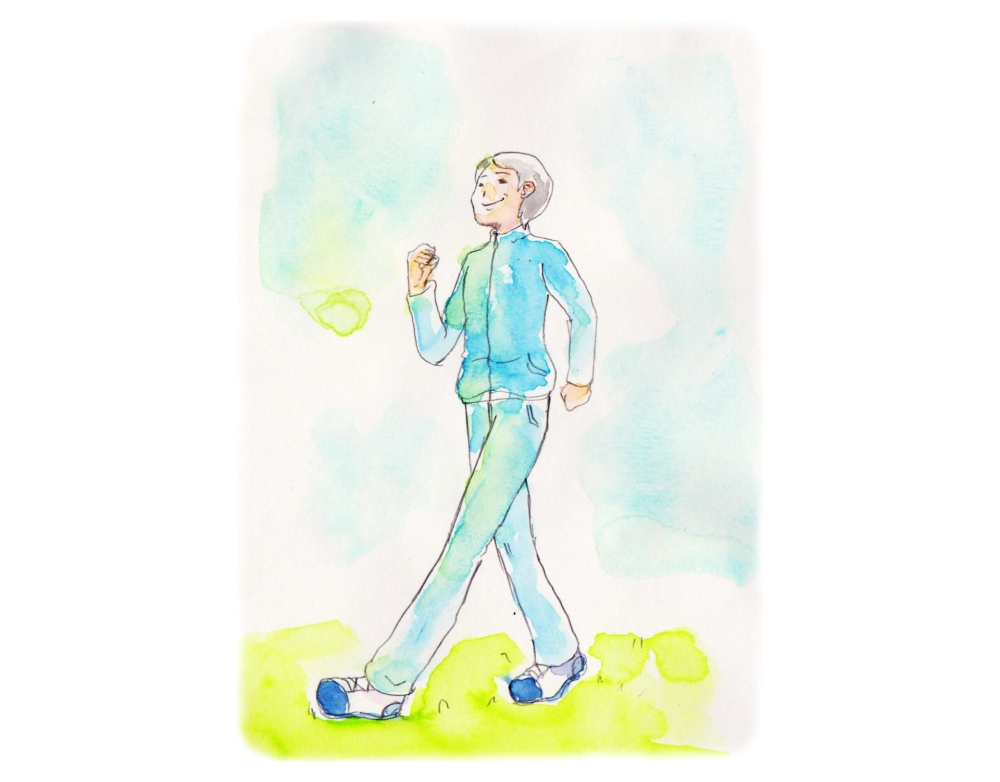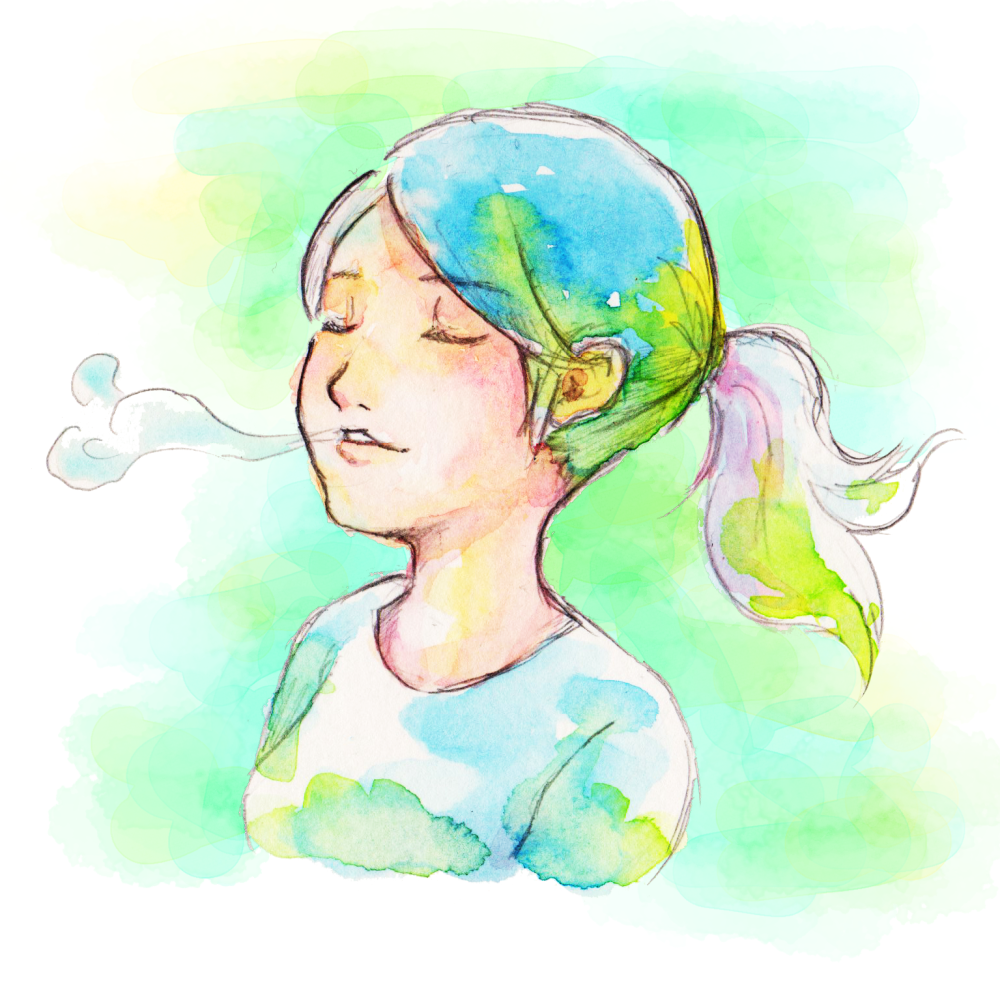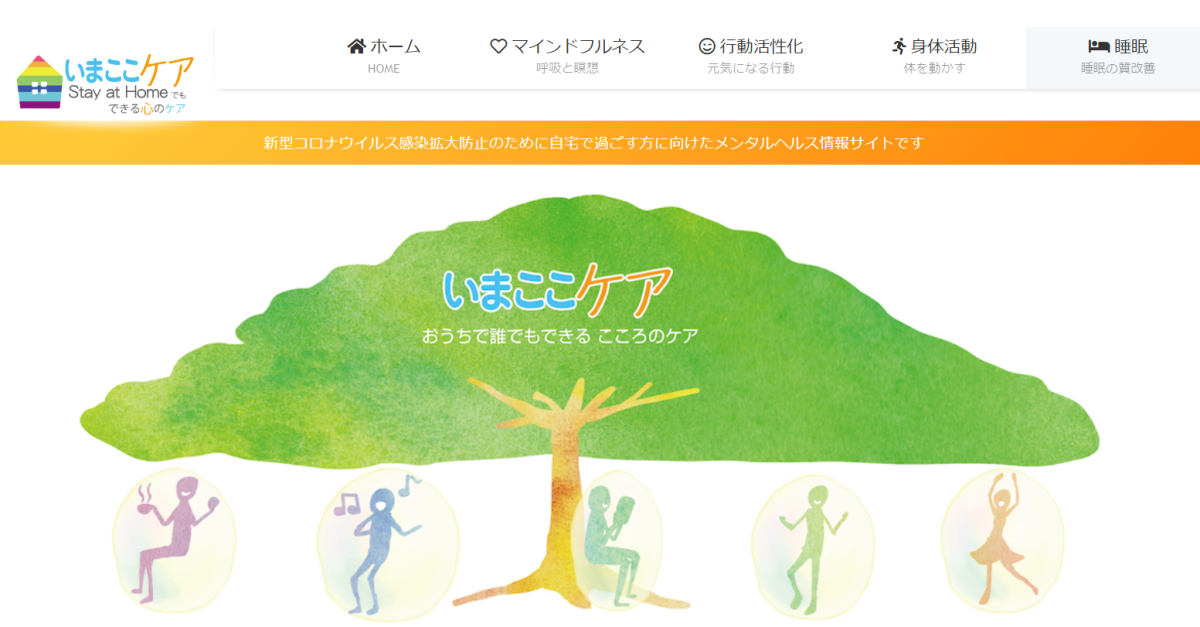Managing stress during the pandemic UTokyo experts offer evidence-based tips through website


An image used in “Imacoco Care,” a website developed by mental health experts at UTokyo
The coronavirus pandemic has transformed our lives, though affecting some people more severely than others.
With the national government’s declaration of a state of emergency in April, people in Japan have been imposed a near lockdown for weeks, and stay-at-home requests remain in place in many areas across the nation. With no end in sight to the pandemic, feelings of stress and anxiety have grown among not a small segment of the population.
To help alleviate such feelings, researchers at the Department of Mental Health at UTokyo’s Graduate School of Medicine launched a website earlier this month. Titled “Imacoco Care (literally translated as ‘Now Here Care’ and meaning mental health care needed here and now),” the website offers evidence-based tips to cope with COVID-19 stresses for housebound residents and remote workers.
Professor Norito Kawakami, who oversees the project, has long researched mental health care needs of people in emergency situations, such as those of people affected by the Great East Japan Earthquake. But measures needed for the ongoing outbreak are much more complex than in the 2011 quake, which triggered tsunami and nuclear disasters, Kawakami said.
“The Tohoku disasters resulted in the deaths of many people and so the damage was enormous, but at least the damage was visible,” Kawakami said. “We could pinpoint what measures to take and where. But with the coronavirus outbreak, infections are spreading all over, yet it’s hard to grasp what exactly is happening in each place, and we can’t tell when the outbreak will be over. We have very complex challenges here.”
Still, the researchers at the Kawakami lab managed to get a website full of tips and resources up and running in about two weeks after having their first meeting in mid-April. The quick release was possible because the lab had ample evidence and expertise from earlier stress management projects, such as the development of an online suicide-prevention program for workers.

Mindfulness helps people ease feelings of anxiety. (Image credit: Imacoco Care website)
The site comprises five parts: mindfulness, behavioral activation, physical exercise, sleep and a summary of other tips on stress management. Each part contains several articles on how to ease stress and feelings of depression, often accompanied by video and audio instructions to help readers practice their skills.
Mindfulness, widely practiced in the West and recently gaining popularity in Japan, is a therapeutic technique through which people achieve a feeling of calm by focusing their attention completely on the present moment without involving evaluation or judgment. Research on mindfulness started in the U.S. as a tool to alleviate the pain of people whose medical treatment proved challenging, such as terminally ill cancer patients and traffic accident victims with chronic pain.
Kotaro Imamura, a project lecturer who heads the website’s development team, said he decided to include mindfulness in the program so “people can achieve calmness and peace of mind in the present environment, where finding short-term solutions to the various problems caused by the spread of the coronavirus disease is not easy.”
Meanwhile, behavioral activation is a scientifically proven technique used in depression treatment. Using behavioral activation, the site helps users choose behavior that brings them a sense of enjoyment and achievement.
Many of us wonder if it’s acceptable to go outside for jogging or walking while stay-at-home requests are in place. The site advises that as long as people avoid the 3Cs, a dangerous mix believed to increase risks of coronavirus infection — being in a “closed” space and in a “crowded” place, and having “close-range” conversations with people — and if they take precaution not to spread the virus, such as by wearing masks, it is OK to take a walk or go for a jog in your area.
The Japan Association of Exercise Epidemiology, in a statement dated April 18, also recommended people exercise at home and in their neighborhood while maintaining enough physical distance from others, so they won’t damage their health from lack of exercise and a sedentary lifestyle.
Imamura says he will collect feedback on the site from the lab’s network of medical professionals, and update the site as it becomes necessary. He also said the site’s developers will assess its stress alleviation effects in a future study.
Kawakami, meanwhile, says more work needs to be done to ensure the mental health of workers. The sudden switch to remote work under the COVID-19 pandemic is feared to have left some employees feeling isolated.
Company managers need to offer more support fine-tuned to assist teleworking employees than when they were working in the office by grasping each employee’s work conditions, and by sharing expectations and progress with one another, Kawakami said, noting that trust between managers and teleworkers is essential to making telework a success.
Furthermore, Kawakami pointed out that Japan would need to prevent a spike in the suicide rate of men in their 40s and 50s, a clear trend seen during the nation’s economic recessions, by adjusting existing programs and working closely with businesses.
Interview/Text: Tomoko Otake
July 20, 2020: This article has been updated with the launch of the English website on July 14.







